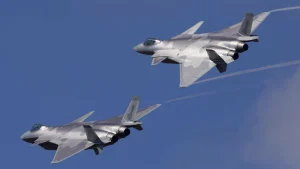Will Elon Musk joining the Trump administration pose a fatal threat to China?
The South China Morning Post, an English-language media outlet in Hong Kong, reported that Zheng Yongnian, Dean of the School of Public Policy at the Chinese University of Hong Kong (Shenzhen) and President of the Qianhai Institute for International Affairs, stated at a forum on November 23 that the reforms driven by high-tech capital forces, represented by tech billionaire Elon Musk, during Donald Trump’s second presidential term might become China’s greatest challenge. He emphasized that China should respond by expanding “unilateral openness” measures to countries, including the United States. He noted that the core of competition between China and the U.S. lies in “who is more open.”
The Baichuan Forum, hosted by the Qianhai Institute for International Affairs of the Chinese University of Hong Kong (Shenzhen), opened in Shenzhen on November 23. In his keynote speech, Zheng pointed out that beneath the rising calls for multipolarity, major powers not only desire to share international power with the U.S. but also secretly delineate spheres of influence to consolidate their power. Today’s world increasingly resembles a regional “feudal domain” system, marking a new phase of “feudalization” in the international order.
Zheng noted that if Trump returns to the White House, China’s economy and trade could face “significant shocks” in the short term, but geopolitical pressure might ease.
In Zheng’s view, Trump’s use of tariffs under his “America First” policy would not only “maximize” damage to bilateral relations but also disrupt the international trade system. For Trump, geopolitics is merely a “threatening” tool, and he does not truly intend to engage in war with China. Even if U.S. hawks dominate, China has sufficient defense capabilities to protect itself, and its defense is currently in a phase of rapid growth.
“In the medium to long term, the greatest pressure China faces may come from changes within the United States,” Zheng said. He warned that if Trump succeeds in reforming the government, the U.S. might “breed a new, more competitive system,” a so-called “U.S.-style state capitalism,” which would pose unprecedented challenges for China.
“Personally, I believe we should not underestimate reforms driven by figures like Musk,” he said.
This month, Trump announced plans to establish a new “Department of Government Efficiency” (DOGE), to be co-led by Musk and Indian-American entrepreneur Ramaswamy, aiming to reduce government spending and streamline bureaucracy. Trump described this as potentially the “Manhattan Project of our era.”
Musk and Ramaswamy published a “reform agenda” in The Wall Street Journal on November 20, proposing the elimination of various unreasonable federal regulations and initiating large-scale layoffs.
“A more efficient U.S. political system will place immense pressure on China,” Zheng said. “Of course, this pressure extends beyond China to other countries, particularly Europe.”
To adapt to the changing global environment, Zheng suggested that China must fully tap into its internal growth potential. He stressed the importance of accelerating institutional reforms under the “dual circulation” strategy and supporting domestic markets. He further noted that China should expedite its opening-up measures, particularly by advancing a “unilateral openness” strategy to counter the U.S.’s attempt to establish a parallel trade system independent of China. Such a strategy could create an external driving force for China’s institutional reforms.
“While we must not underestimate the Trump administration’s ability to disrupt the global trade system, we must also not underestimate China’s ability to reshape global trade through its openness,” Zheng emphasized. “History has shown that the side that ultimately wins competition is the more open one.”
To further facilitate international exchanges, China announced on November 22 an expansion of its visa-free entry policy to include nine countries, such as Estonia, Latvia, and Japan.
Zheng called for U.S. capital and citizens to be included in China’s “unilateral openness” policy, arguing that this approach would effectively isolate U.S. hardliners, Cold War advocates, and anti-China forces.
“Although competition between China and the U.S. is inevitable, we should not fear it,” Zheng said. “We must realize that the core of competition lies in who is more open.”
“The ultimate winner will undoubtedly be the more open party,” Zheng said. “As long as we remain more open, I believe we will surpass the U.S.”



